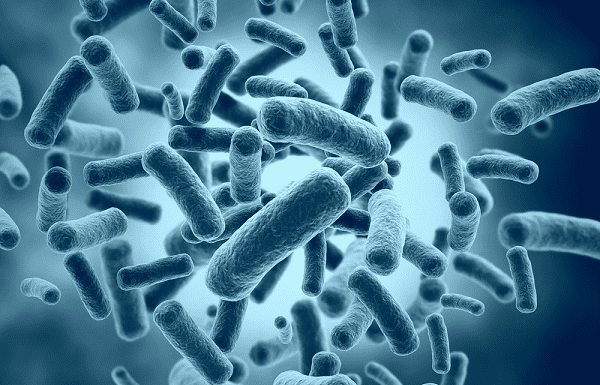
Ever wonder why some people can be around a sick person and not catch anything? Or how about those who preach the five-second rule when their food drops on the floor and never get so much as a throat tickle? Why is it like this for some? Do they have some super power that prevents them from catching illness? Of course not.
Why some people are more prone to sickness and others are not can be directly attributed to our immune system — and how powerful each individual one is. The immune system is our main line of defense against germs. In fact, when we are born our immune system could not be stronger. A recent Harvard publication showed that for the first year of life our thymus function is the best it will ever be. A newborn baby is full of the all-important T-cells — the primary contributor to fighting-off infection — which in turn makes that infant one superior germ warrior.
However, the study also showed that after this first year of life our thymus function starts to decline and our number of T-cells diminish, taking our immune system out of this nearly impenetrable state and leaving it susceptible to invaders. This disturbing decline continues throughout our lives and is the reason why so many of our elderly perish from even the smallest of sicknesses.

Of course, all immune systems are not created equal, and while some continue to have a strong defense against germs well into old age, others are not so lucky. For many of us, my past-self included, simply touching a door handle then accidentally rubbing our eye could mean suffering from pinkeye for a week. Or how about hearing someone sneeze across a crowded room and knowing the next morning you will wake up with the sniffles?
Discover Magazine at discovermagazine.com notes that contrary to what many believe, the immune system is not a stagnant single entity, but a system that relies on many different things. When it comes to building any part of our health, there are certain lifestyle choices that are critical.
Not smoking, getting plenty of sleep, maintaining a healthy weight, exercising regularly, practicing habits of cleanliness, and avoiding excessive intake of alcohol — these are choices that can set even the genetically unhealthiest of individuals on a path to success.
Research has shown that GALT, or gut-associated lymphoid tissue, is the primary factor of MALT, or mucosal-associated lymphoid tissue, and makes up nearly 70% of our immune system. About 80% of our plasma cells live in this GALT (which includes our Peyer’s patches — known as the immune sensors of the intestines).
This is crucial when understanding what keeps us healthy, for what we put into our stomach to be digested directly effects our immunity, both negatively and positively.
A healthy diet can make the difference between your immune system being a warrior or a weakling. The difference between a processed candy bar versus an organic carrot or celery stick is profound when it comes to how our body processes each of these foods. For starters, most processed food is made to last a long time and it takes our body hours on end to digest, while whole foods break down in your stomach in a matter of minutes.
In a recent study developed by Stefani Bardin in conjunction with Harvard Gastroenterologist Dr. Braden Kuo, two subjects were given two opposing diets while swallowing the revolutionary M2A (mouth to anus) pill which visually records its entire journey to show each diet’s effect on the system. The first subject was fed a diet of blue Gatorade, Top Ramen noodles, and processed gummi bears, the other was fed an organic diet of hibiscus tea, egg noodles, and gummy bears made from natural fruit juices.
The difference between the two diets was immense. In the first subject, hours after the meal was eaten, the intestines glowed blue (coloring from the Gatorade) and the Top Ramen noodles were still clearly visible, while the second subject’s intestines remained naturally pink and its contents were fully digested.
The differences when it came to acidity and inflammation were also stark. Diet number one’s acid levels and inflammatory response were exponentially higher than those of the second diet. When it comes to the body’s delicate interrelated system, chronic inflammation and extreme levels of acid can be viewed as its biggest adversary. Although, it should be known that a small level of inflammation has its place in our bodies, especially when it comes to physical activity — some have even said our survival depends on it.
When most people hear “aloe vera” they usually associate it with the topical gel used to alleviate sunburns. But this is just one small aspect of this amazing plant. Aloe vera is loaded with over twenty kinds of amino acids — coined as the building blocks of life. Science Daily at sciencedaily.com says that it also provides your blood with three different plant sterols (fatty acids) that are full of HCL (good cholesterol) to strengthen your cardiovascular system. This can also help with early brain development.
The healing benefits of aloe vera seem endless: it improves the skin, blood, digestion, stops harmful inflammation, assists with protein absorption, and even removes toxins from your system. All these benefits and more have earned aloe vera the flattering moniker “The Fountain of Youth.”
Aloe vera is just one of many supplements that can assist with immune support, especially when concerning harmful inflammation. Tumeric, malunguy tea, matcha green tea, American ginseng, and CBD oil have also shown some incredible effects on strengthening our body and its systems.
By making intelligent lifestyle choices such as not smoking, avoiding excessive alcohol intake, exercising, maintaining proper body weight, supplying your body with proper foods, and utilizing immunity building supplements, you are setting-up your immune system for success.
I witnessed it firsthand. At one point in my life I was at mortal risk of the smallest illness ending me. My immunity had been so compromised by cancer treatment that it was suggested I avoid crowded places and essentially run when in contact with something contagious. That is no longer the case.
By simply following a sound healthy lifestyle and structuring my diet to be an organic plant-filled diet that focuses with great care on what I put in my stomach, I was able to build my immune system to a point where there are no more restrictions. In fact, for the past year and a half I haven’t had so much as a cold.
Being confident in your immune system will grant you a new level of freedom in life. Incorporate these healthy tips into your day and watch your immunity, health, and overall quality of life soar to new heights.
I think the article hits it with the part about the basics: don’t smoke, get sleep, watch your weight, get some exercise.
Yes, it ain’t exactly rocket science now, is it?